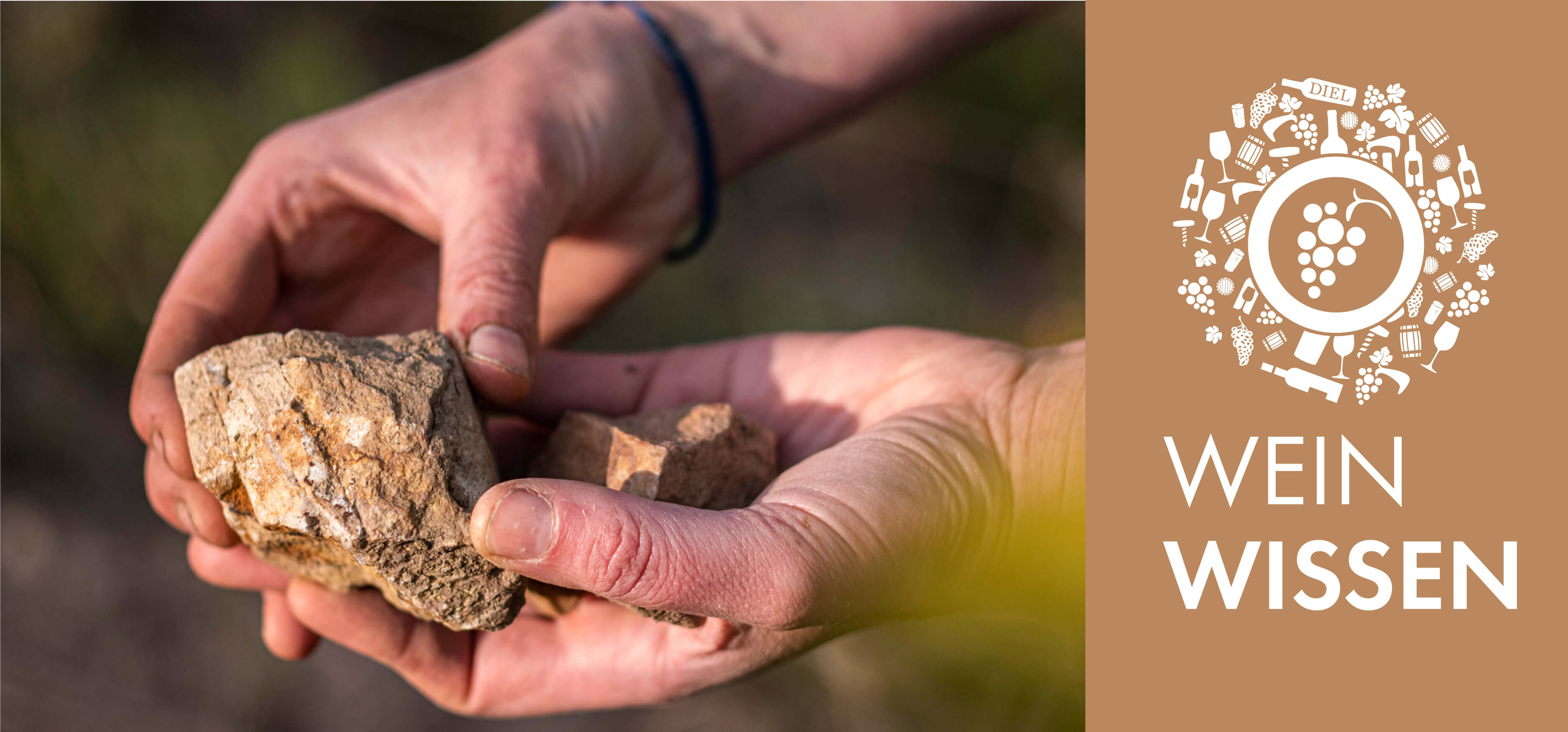wine knowledge
“The geological terroir of the Nahe winegrowing region is shaped by its history of volcanic activity.”
Caroline Diel
Terroir

What are terroir and origin? And how do they influence wine?
Terroir and origin are tightly connected. These important aspects of fine winemaking shape both grapes and the resulting wines, allowing for entirely distinctive expressions of taste, even within a single variety. Taken in combination with the winemaker’s approach and the microclimate, terroir and origin thus play a fundamental role in nurturing the remarkable and entirely individual notes of each maturing wine. The geological terroir of the Nahe winegrowing region is shaped by its history of volcanic activity. Over millions of years, periodic volcanic upheaval roiled the ground time and again, bringing a variety of different soil types—from porphyry, red sandstone, slate and marl to quartzite, loam, loess and weathered clay—to the surface. And these, in turn, now shape wines grown here:
• Slate, for example, can be perceived in both the nose and on the palate, delivering plentiful minerality and a lasting saline finish.
• Gravelly soils from the Permian age lend themselves to notably juicy wines with yellow fruit and aromatic hints of peach, apricot, and spicy flint.
• Quartzite in turn has a characteristic earthiness, spice, depth and enduring, nearly austere mineral character.
Terroir at Schlossgut Diel
Schlossgut Diel also benefits from the region’s primordial volcanic activity. The composition of the estate’s soils is radically diverse. Within a single kilometer, there are vineyards with meaningful portions of slate, gravel atop Permian aggregates, loessy clay, quartzite, and primordial Rotliegend. This terroir seems predestined for Rieslings and members of the Pinot family in particular, as these grape varieties beautifully reflect the soils and thrive in this climate. Rieslings grown here reveal a rich minerality within a lively and fruity nature, while Pinots grown at Schlossgut Diel develop wonderfully powerful and juicy aromas. Caroline Diel has long made it her goal to bring the special character of each vintage to the forefront, and to produce authentic wines that recount the origin of the land and the soil at Schlossgut Diel.